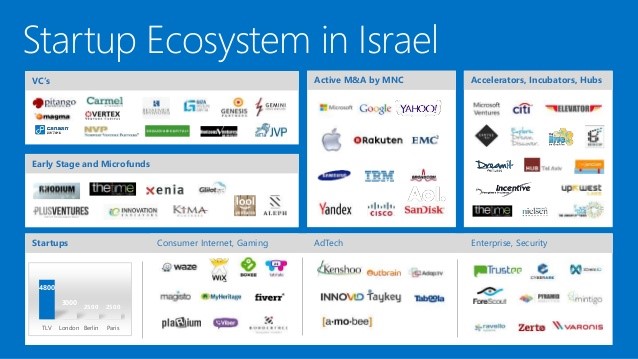This is Part 2 of a two-part series on Israel’s success as an innovation hub.
Zack Weisfeld builds companies. After graduating from Tel Aviv University, Weisfeld led Netking—then the country’s second largest Internet portal—and started MSN Israel. He then took up a challenge to turn around the struggling Americas division of M-Systems, growing it by eight-fold before the company was sold to its flash memory rival SanDisk SNDK +% for $1.6 billion in 2006.
After seven years in Silicon Valley, Weisfeld returned to set up Microsoft MSFT +0.87%’s research and development center in Israel and later joined two startups to expand their operations. In 2010, he returned to Microsoft.
“I looked at what’s going on in the world and saw many amazing startups,” says Weisfeld. “And I wanted to know how we [Microsoft] can be as relevant and connected as possible to these new kinds of entrepreneurs.”
He studied the business models of Y Combinator and Techstars and decided to start a corporate accelerator. “It’ll help us jointly create value, connecting our R&D to the ecosystem and empowering the best entrepreneurs to achieve more,” explains Weisfeld.
Despite not receiving any funding or support initially, Weisfeld pressed ahead. In April 2012, the first Microsoft accelerator started out of a room in the Tel Aviv R&D center. With the success of the first class of participants, Weisfeld took his blueprint and soon expanded to China and India.
Today, the accelerators are run out of eight locations around the world, with 9,000 applications for only around 150 spots. According to Weisfeld, the over 400 portfolio companies have collectively raised $1.8 billion. Twenty-six of them have been acquired and three have gone public.
Although Microsoft’s accelerators provide access to experts and investors, as well as resources such as working space and cloud storage, it does not take equity from its portfolio companies. So what’s in it for them?
“Fortune 100 companies understand the world is getting disrupted from many directions, but they don’t know where,” Weisfeld says. “Through these accelerators, we have our finger on the pulse, look at data and signals we collect around the world, and see trends before they happen.”
As I walk around the Tel Aviv accelerator, I see Microsoft’s researchers and engineers working close to the entrepreneurs. According to Weisfeld, they feed off the innovative culture and spirit of the accelerators. Some make changes to Microsoft’s…

